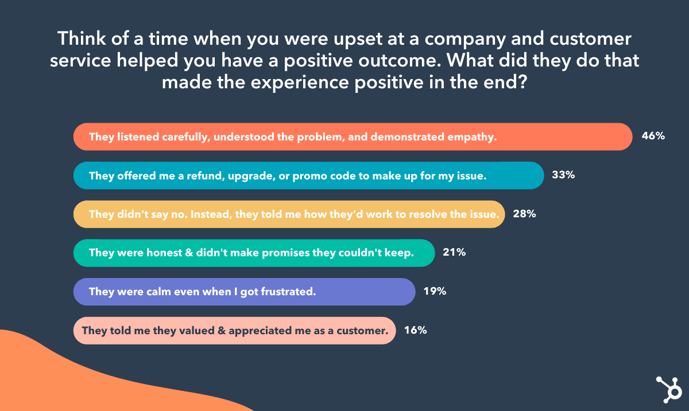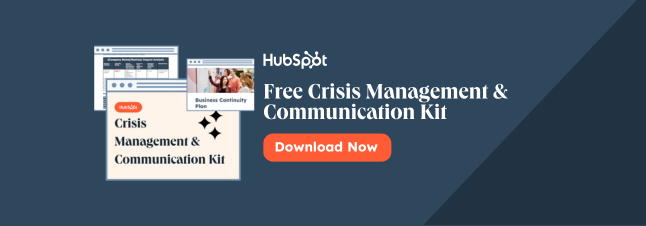Offre De Remboursement Samsung Lave Linge
No affair what your business, your customers are your greatest asset. Which is why keeping them happy is disquisitional. It's natural for your customers to go frustrated or upset from time-to-time when dealing with an issue related to your business — but how your client service team handles and de-escalates the situation is vital for client retention and loyalty. With the long-term satisfaction of your customers' at stake, it's essential that your team learn effective de-escalation techniques. In this mail service, we'll dive into five de-escalation techniques, and why they work. De-escalation is a process past which y'all calm the state of affairs earlier information technology gets worse. This tin be done through a variety of techniques involving animate, active listening, request questions, beingness compassionate, and the employ of body language. Recently, I had an upsetting experience with an airline afterwards dealing with a flight cancellation. I wanted a refund, so I waited three hours to speak with a member of their service team, only to hear: "I'm sorry, ma'am, but in that location'due south zero I can exercise for you." Now, I'm non blaming this airline, or this service rep. But one affair I learned throughout the encounter was how much empathy mattered to me. I didn't necessarily need the rep to give me exactly what I wanted: I just needed to feel heard and understood. And, obviously, so does everyone else. In a contempo survey I conducted to 100 consumers across the U.Southward., "listening advisedly, agreement the problem, and demonstrating empathy" was the most popular response to the question, "Think of a time when you were upset at a company and customer service helped you lot have a positive upshot. What did they exercise to make the experience positive?" Listening and demonstrating empathy exceeded fifty-fifty "they offered me a refund, upgrade, or promo lawmaking". In other words: People intendance more about a service rep'due south behaviors than they practice a rep's actions. All of which is to say: The way your reps bear when a customer is upset could brand-or-break that customers' loyalty. So information technology's a critical component of long-term customer retentivity. Permit's dive into v of the most effective de-escalation techniques, next. 46% of respondents rated active listening and empathy equally the most important de-escalation technique practiced past service reps. Improving your communication volition assistance forestall misunderstandings from occurring, and volition help y'all to de-escalate them when they practice. Active listening requires y'all to actually listen to the other person, rather than interrupting them, rushing them, or spending the time in your head plotting out what y'all'll say next. When you listen to the other person, they feel heard and appreciated, and their anger will begin to subside. Asking questions (and listening to the answers!) allows you to hear their side of the story and get down to the actual root of the trouble. Remember that there are e'er iii sides to a story: yours, theirs, and what actually happened. Be open to hearing how they take interpreted something and how it may be different than how you intended information technology. Equally HubSpot Senior Inbound Consultant Bradlee McKibben told me, "When I encounter escalation situations during consulting calls, the first affair I exercise is lay a potent foundation of listening, by fashion of asking strategic questions and giving the customer the space to air their frustrations and their needs. My goal is to dig deeper into what the bodily root trouble is, as sometimes frustrations can exist misaligned. Everyone encounters roadblocks and challenges; customers simply want to know we empathise the why and are here to help." Showing empathy by putting yourself in their shoes will assist de-escalate the situation at-hand. Once they know you're going to endeavour and practice what's all-time for them, they tin calm down and you ii can work together to get their issue resolved. Money tin often exist a major cause of contention. If your customers feel they've lost or wasted money and oasis't received the full bundle in-return, information technology makes sense for them to experience frustrated or aroused. Oft, so, money can also be the answer. In fact, roughly one-tertiary of respondents marked this every bit the de-escalation technique that led to a positive customer service experience. While it can feel painful to offer annihilation for 'costless' to a customer, y'all'll want to keep in mind that it'south much more expensive to larn a new customer than keep an existing one. Of form, you'll want to bide by your company's refund policies whenever possible, but speak to your managing director to understand what you can offer an unhappy customer if you're unable to resolve their consequence. In the situation with the airline, I felt much ameliorate about purchasing some other ticket from them one time a service rep had offered me a refund on my cancelled flight. It proved they valued my hereafter business more than than their lesser-line, and increased my trust. If you lot tin can't provide a refund, consider offering a promotion or disbelieve on a future buy. There's naught more than frustrating than hearing "No," "I don't know", "I cannot", or "It is not within my ability" from a customer service rep — so, to truly de-escalate an issue, avoid these terms. Instead, you might say phrases similar, "I volition investigate this effect," "I volition try to resolve this outcome", or "I'm digging into this." If possible, explain specifically how you're planning to help resolve the customer's upshot. For instance, you might explain that you're going to send their ticket to your Information technology team so they tin can dig into an consequence with your software. Tell them they can expect a follow-up from you within the next 48-hours, and you'll intermission payments in the meantime until the outcome is resolved. As McKibben puts it, "Sometimes I encounter escalation situations that are outside my function's scope. I make sure to clearly explain to the client how my expertise isn't all-time suited to solve the trouble, but that I volition take the post-obit steps: loop in the correct point of contact, file a roadblock with our product squad, and/or follow upward with the Support rep who is handling the ticket." She adds, "I brand certain my follow-up is timely, actionable, and detailed so that the customer knows I'm keeping track of the issue. Lastly, I will provide helpful resource or means other customers have tackled similar issues, if applicative." HubSpot's Senior Client Success Manager Jen Berenguer told me honesty is her number one de-escalation technique. She says, "Firstly, because information technology aligns with HubSpot'south value of transparency, but mainly considering managing expectations is one of the almost important aspects of my role. When I'm honest with how much I care almost a customer's trouble, the steps I'grand taking to help, and more chiefly what I won't be able to practice, information technology helps them understand the complexity of the thing, and how feasible it is to get to their desired outcome." "Well-nigh of the times, honesty leads to a stronger relationship with my clients, fifty-fifty when nosotros accept a problem that tin can't be solved." Lying to your customers to make them happy might seem like an easy solution for de-escalating a state of affairs, simply it will ultimately backfire past creating a major sense of distrust. Personally, I wouldn't desire to work with a business that encouraged or enabled its support reps to lie at all costs — would you? Rather than lying or over-promising when you're unsure whether y'all'll be able to deliver, simply inquire for time to explore the effect further. Instead of saying, "I can hope you we can help you," you might say something similar, "I can promise you I'll endeavour my best to help you." Customers know when you lot're lying, and promising y'all can help is a lie unless y'all've already found a surefire solution. While information technology tin can exist tempting to raise your vocalization or go equally emotional when speaking to an angry client, it won't de-escalate the effect and might even make information technology much worse. Instead, it'due south critical you remain calm. Breathing tin can help with this — When an argument begins, our bodies are forced into a fight, flight, or freeze way. Our animate becomes labored, our heart rate increases, and we're literally prepare to fight our "attacker" or abscond the situation. Neither of these solutions is ideal for workplace conflict. Controlled breathing benefits a heated situation in multiple ways. Outset, taking a deep breath calms your nervous system, assuasive you to think (and respond) conspicuously and calmly. With focused breathing, you tin lower your heart rate and your claret pressure, and take yourself out of this common stress response. Second, a few moments of deep breathing tin can give you the time you demand to collect your thoughts and then you lot don't say or do anything that could cause lasting harm. While merely sixteen% of respondents rated this as important for de-escalation, it'southward undoubtedly a nice extra step y'all tin can have one time you've de-escalated a situation. However, y'all'll desire to time this one wisely: Telling your client yous value them earlier providing a solution to their trouble could seem disingenuous, especially if they're upset. Once yous've identified a solution, however, it'southward a practiced thought to emphasize that you truly appreciate the customer'southward business. Learning de-escalation techniques and training your entire team from HR, to managers, to your frontline workers tin have a multitude of benefits for your organization. These include (but are not limited to): Whenever you lot have dissimilar personalities coming together to complete a common goal, misunderstandings are jump to happen. With the right de-escalation training, you tin can ensure that when small-scale issues arise, they don't turn into major battles that ruin relationships and impairment your bottom line. 

What are de-escalation techniques?
Why De-Escalation Matters in Customer Service
How Consumers React to 5 De-Escalation Techniques + Why They Piece of work [New Information]

1. Practice active listening, and demonstrate empathy.
2. Offer refunds, upgrades, or promos to make up for an event.

3. Don't say no; instead, tell your client how y'all'll work to resolve their issue.
4. Be honest and don't make promises yous tin can't keep.
5. Stay at-home, even when your client is frustrated.
6. Tell customers you value and appreciate them.
The Benefits of De-Escalation in a Company

Offre De Remboursement Samsung Lave Linge,
Source: https://blog.hubspot.com/service/de-escalation-techniques
Posted by: pridgentwitir.blogspot.com


0 Response to "Offre De Remboursement Samsung Lave Linge"
Post a Comment